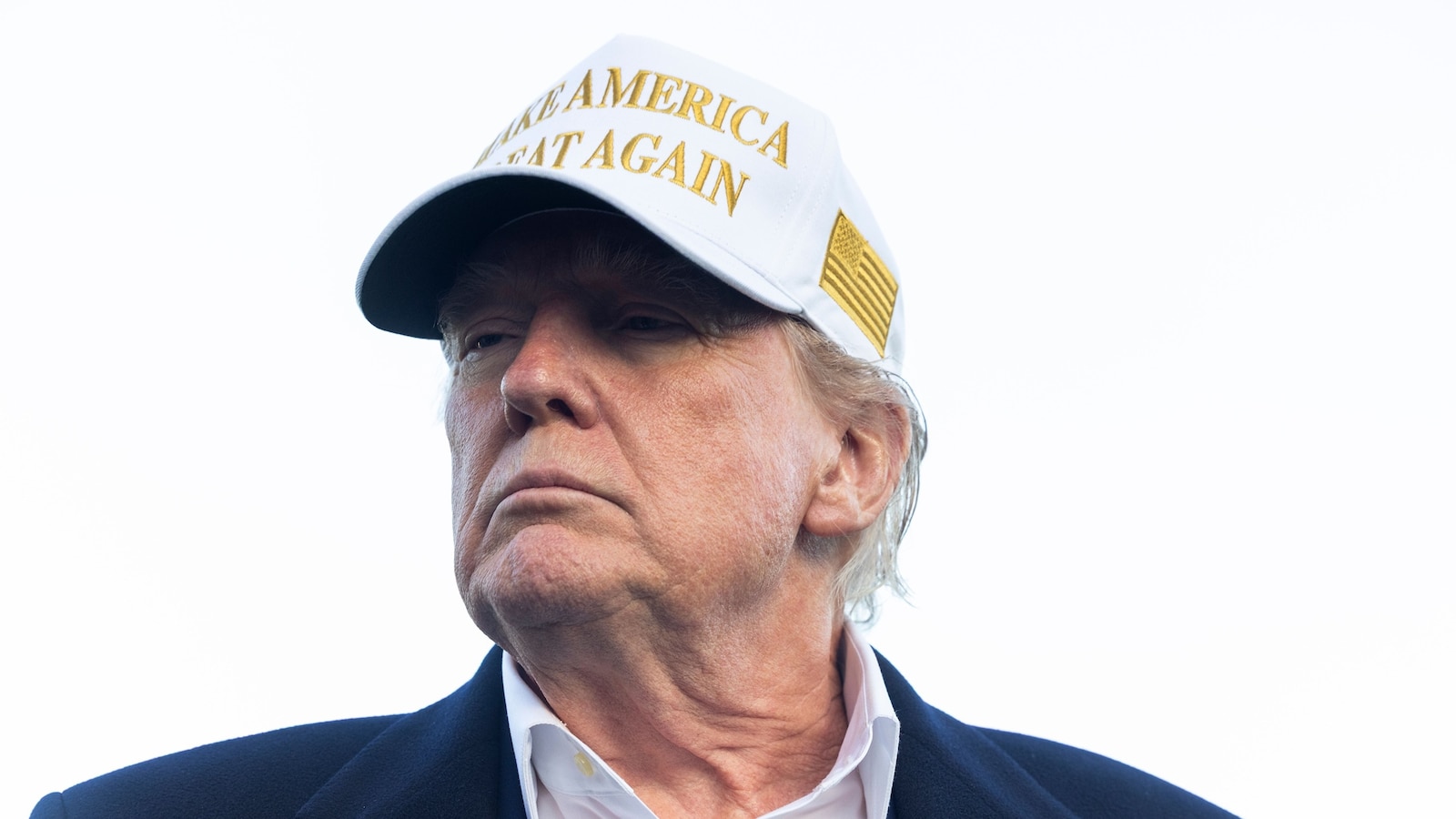A hundred days into his second term, President Donald Trump’s seemingly unending torrent of executive actions has aimed to overhaul many facets of the federal government, push his cultural agenda and settle scores with those he sees as enemies.
His second first 100 days in office have been vastly different from those of his first term. Unlike then, Trump is now surrounded by a team that understands how to mechanize government to satiate his desires to make himself in the image of the strongmen he expresses admiration for.
Clawing back federal funding, revoking security clearances and visas, and testing the limits of court orders are all tools in this administration’s arsenal. Trump himself continues to float legally questionable ideas like sending Americans to foreign prisons with the ominous promise that his team is “looking into” it and claiming “there are methods” to seek a third term for president.
Though the economy and inflation were arguably the most important issues as Americans cast ballots in November to return Trump to the White House, his promises of economic grandeur have not materialized.

President Donald Trump returns to the White House from his New Jersey golf club in Washington, April 27, 2024.
Jim Lo Scalzo/EPA-EFE/Shutterstock
The latest ABC News/Washington Post/Ipsos poll found broad economic anxiety with 72% saying it’s very or somewhat likely that Trump’s economic policies will cause a recession in the short term. According to the same poll, 53% say the economy has gotten worse since Trump took office.
Early in this second term, Trump has tried to bend institutions and even nations into submission — from universities to law firms to trade partners and allies.
“I run the country and the world,” Trump told The Atlantic.
His action-packed first 100 days haven’t delivered popularity for Trump. He has the lowest 100-day job approval rating of any president in the past 80 years, according to the same poll.
Trump 2.0 is unburdened by political convention. Neither public opinion nor the concerns of Republican lawmakers nor a volatile market has spurred this administration to change course. For the Republican Party, particularly those in vulnerable congressional districts and battleground states, this is a political liability.

Police grab a man at Rep. Marjorie Taylor Greene’s town hall event in Cobb County, Ga., on April 15, 2025.
Pool via ABC News
Look no further than the hordes that turn up to town halls hosted by the few Republican lawmakers brave enough to host them. They are characterized by tense exchanges, audience ejections and, in one case, stun guns deployed to subdue two attendees. Republicans have largely dismissed concerns raised in these venues.
Or look at special elections where Democrats won or outperformed expectations. Even some Republicans admit that momentum is on the side of Democrats and their anti-Trump (and Musk) message.
Still, there are few Trump supporters who regret their choice. The question looking forward is if they’ll turn out when he isn’t atop the ticket.
At the same time, the soul-searching underway on the Democratic side demonstrates an uncertainty about what messaging and who should come next.
Our poll found that 69% of Americans say the Democratic Party is out of touch with the concerns of most people in the country while 60% say the same of Trump and 64% the same of the Republican Party.
Some have interpreted November’s losses as a call to make more concerted efforts to reach moderates and even those on the right.
California Democratic Gov. Gavin Newsom has ingratiated himself with conservative figures via his podcast (a medium Trump and those in his orbit dominated in the run-up to November’s elections). Michigan Democratic Gov. Gretchen Whitmer made a point to say she understood Trump’s motivation on tariffs and appeared with him in the Oval Office (though she hid behind a folder for a portion of her visit). Democratic Sen. Elissa Slotkin of Michigan seemingly praised Ronald Reagan during her rebuttal to Trump’s address to a joint session of Congress.
Intraparty tensions have also been on display as the party tries to reinvent itself and as some Democratic voters have indicated they’re looking for Democrats to fight harder against the Republican Party.

Political activist and Democratic National Committee vice chair David Hogg speaks with ABC News, April 16, 2025.
ABC News
Gun-reform activist David Hogg made the highly unusual move as vice chair of the Democratic Party to weigh in on primary races targeting incumbent Democrats he calls “asleep at the wheel” in hopes of forcing a party shift to a new generation of leadership through his group Leaders We Deserve. It’s a move Democratic National Committee Chair Ken Martin decried.
During recent remarks in New Hampshire, Democratic Gov. JB Pritzker, a potential 2028 contender, went after who he called “do-nothing Democrats” who he said “blame our losses on our defense of Black people, of trans kids, of immigrants, instead of their own lack of guts and gumption.”
He also called for mass protests against the White House.
“These Republicans cannot know a moment of peace,” Pritzker said. “They have to understand that we will fight their cruelty with every megaphone and microphone that we have. We must castigate them on the soap box and then punish them at the ballot box.”
Sen. Bernie Sanders and Rep. Alexandria Ocasio-Cortez have doubled down on progressive values in their cross country “Fighting Oligarchy” tour.
It remains to be seen which faction of the Democratic Party will win out on strategy that could help recoup their losses looking ahead to midterm elections.
While the first 100 days of the Trump presidency may prove to be a defining period for Trump and his presidency, the political future of both parties is still a moving target.

